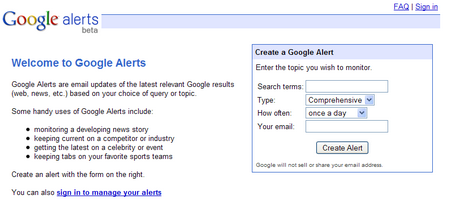
Calling all cars, calling all cars. Be on the lookout for a massive search engine that has killed dozens of small business marketing gambits and mortally wounded the titan of marketing.
Among the dead are A-Aardvark, ABC whatever, A-ABC whatever and similar efforts to be on the top of any category in the Yellow Pages. The Yellow Pages themselves are in intensive care, and not expected to survive.
If you were to look in any yellow pages directory in any city in America, you could find an ABC named company in a dozen or more categories. Why, because it paid to be in the top listing in the yellow pages.
The beauty of the yellow pages was the fact that the people who used it, were in a buying mood. They had a need to find the right person for a specific purpose. Most businesses would welcome an actively interested prospect over three casual browsers any day.
That was the magic of the Yellow Pages and why they were able to charge such huge sums to advertise. Outrageous sums. But it worked.
You had three options.
Go with your free listing and not expect to get a lot of calls.
Buy visibility from a bolded text, to being listed in multiple categories, or to really be seen, to invest in display advertising. If you went for display advertising, the cost quickly hit the stratosphere. But as expensive as it was, it obviously worked, or people would have stopped using it.
The third option was to game the system, by naming your company something like A-aardvark commercial cleaning, or plumbing, or dry cleaning etc to get the top listing in your particular category.
The yellow pages franchise was a huge money maker for many decades. But today it is all but dead. And despite their efforts to reinvent themselves as an internet directory they are having the life crushed out of them by the ten-thousand pound gorilla, Google.
And recently Google has initiated is coup de grace.
For years now, Search Engine Optimization specialists and knowledgeable marketing consultants have been encouraging businesses to set up their web sites to show up when people searched online for “Accountant” and then your home town. This tactic and related tactics gave their clients the visibility display ads and the A-aardvark strategy offered yellow pages advertisers. Visibility at the top of the category.
At one time, it was only young people who were computer savvy. Today virtually every age group is equally and nearly totally computer oriented when it comes to searching for information. Yellow pages use has shrunk and most people find information that they used to get there online. Google has virtually 80% of that traffic. But this is old news. It’s been that way for almost a decade now. But there is new news.
For the last several years Google has been experimenting with its Google Map. It has evolved over time and may continue to do so, but in its current status it shows up to seven businesses in virtually every category the Yellow Pages ever dreamed of. And since it knows where a person is searching from, it can serve up those businesses that serve that market area.
The new game in town is to find a way to be the A-aardvark on the Google Places Page which is what they are now calling the Google Map feature.
Currently, you can often get there just by claiming the page Google may have already set up for your business and filling in the information they ask. As time goes on, the savvy business will seek advice from experts in the field. Such experts are popping up like dandelions after the first warm spring rain.
There are some tricks to the trade, but the actual work is not rocket science nor particularly difficult. But you want to find such a person and get yourself a fist mover advantage. It will take a year or two before all your competitors catch on to the new changes. In the meanwhile, if you move quick, you can capture more than your share of the new customers in your market.
[You have Permission to reprint and republish the above as long as you include the following resource box with it with live links]
The author Earl Netwal calls himself the Micro Business Specialist. He is a Minneapolis Internet Marketing Consultant. He provides support to businesses who are interested in becoming more visible online using Google Places and other techniques. He offers an inexpensive ebook which provides useful advice in filling out a Google Places Listing at Google Places Map.
[tags]Yellow pages, Google, Google Places, Google Places Page, Google Places Page Rank, Google Places Page Ranking[/tags]

